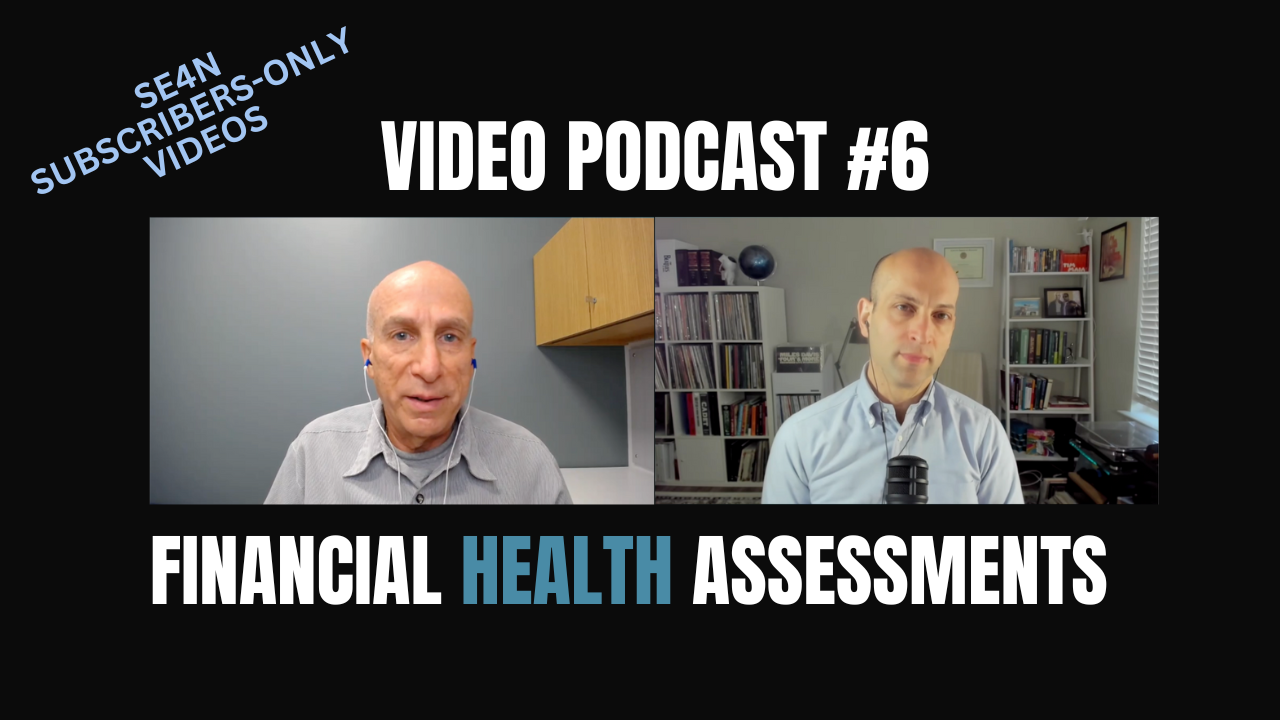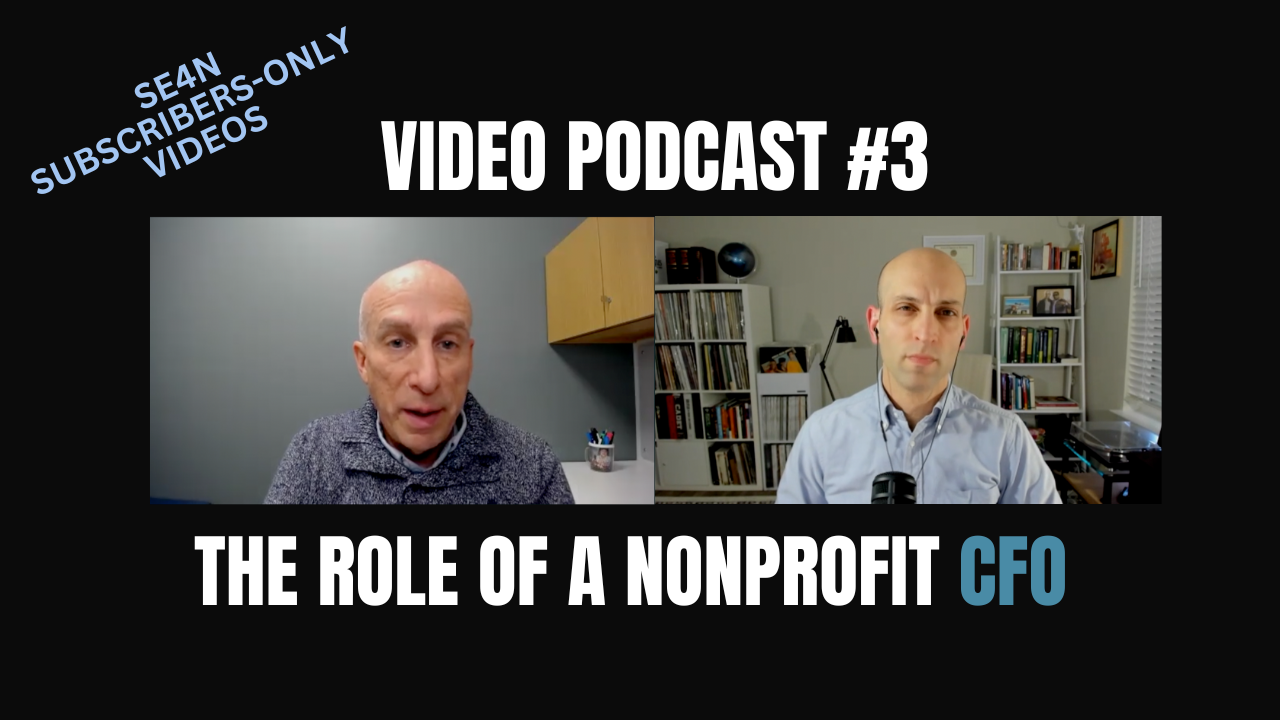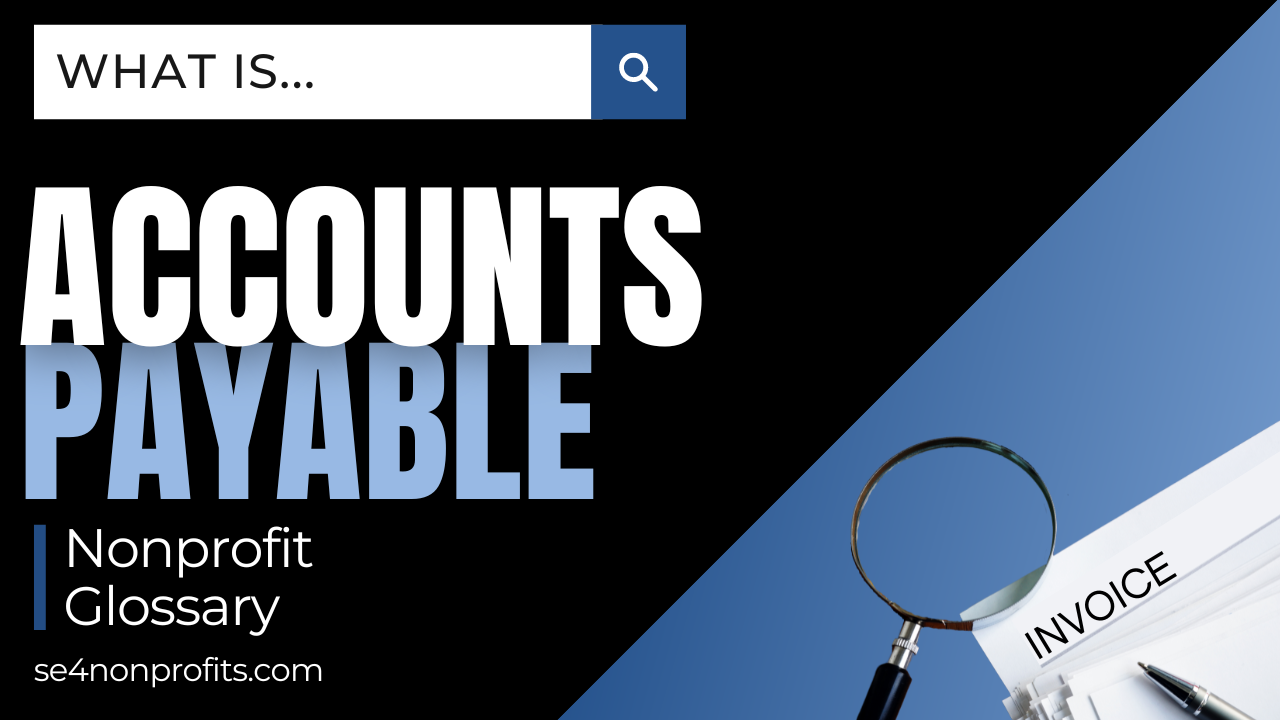
Blog.
Most Recent Posts

VIDEO PODCAST: Using Dashboards to Improve Understanding of Financial Reports
Ben and Mike discuss the role and purpose of financial dashboards for a nonprofit organization, how dashboards improve engagement with financial reports, the standard elements that make up a dashboard, and how dashboards can be optimized to best serve your organization.
![TEMPLATE: Multi-Year Grant Usage Schedule [SUBSCRIBERS-ONLY]](https://images.squarespace-cdn.com/content/v1/5e6ccadfb4659c1d51df14d5/491e0b78-493c-4b0f-972c-01c1d4c1c289/pexels-muhammad-azhar-3401382-5085262.jpg)
TEMPLATE: Multi-Year Grant Usage Schedule [SUBSCRIBERS-ONLY]
Multi-year grants can be very beneficial to a nonprofit organization but can cause significant bottom-line budget (surplus and deficit) volatility. This template multi-year grant usage schedule will help to show the true impact of a grant over the full period of its use and move attention away from the impact on any one single fiscal year budget.

TEMPLATE: Operating Reserves Status Report Spreadsheet
Operating reserves are one the most important components of financial health for a nonprofit organization and a key indicator for long-term fiscal and financial sustainability. Providing regular reports on the status of an organization’s operating reserves is essential for monitoring an organization’s financial health as well as compliance with its operating reserve policy.

Q&A #165 – How often should a nonprofit CEO provide updates to the Board of Directors?
Providing monthly Board reports that include financial reporting and progress updates is an established best practice, and this is especially recommended during periods of change and for organizations whose Boards meet quarterly or less frequently. However, CEOs and Executive Directors must be thoughtful about the frequency and their method of communicating with the Board. Providing updates more often than monthly is usually only recommended in unusual situations.
![VIDEO Q&A for Subscribers: June 2024 [SUBSCRIBERS-ONLY]](https://images.squarespace-cdn.com/content/v1/5e6ccadfb4659c1d51df14d5/682f6ab6-6720-4d11-963f-45e952c5552b/SE4N+Video+Q%26A+2024-06.png)
VIDEO Q&A for Subscribers: June 2024 [SUBSCRIBERS-ONLY]
Ben and Mike answer questions from subscribers about the responsibility of a Board of Directors to fill vacancies and how vacancy appointments count towards term limits, the Board's responsibilities regarding the use of large unexpected gifts and bequests, whether Board service can be reported as an in-kind contribution, and the distinction between policies and procedures that apply to Board and the staff.

VIDEO PODCAST: How and Why to Do Regular Financial Health Assessments for Your Organization
Ben and Mike discuss the importance of performing regular financial health assessments for a nonprofit organization, understanding the key components of an organization’s financial health and the appropriate financial health markers to track, how the Financial Health Assessment and Implementation Framework worksheet can be a valuable tool for your organization, and more.

Capital Budgets Play an Important Role in Nonprofit Planning and Budgeting
Annual operating budgets for nonprofit organizations will always hold center stage, drawing the attention of senior management, Board, and staff. However, this focus can often lead organizations to neglect longer-term sustainability, capacity, and cash flow planning issues. This is why capital budgets have an important role, serving as a synergistic complement to annual operating budgets that will help current and future planning.

Integrating Financial Health Assessments into Your Organization’s Planning Process
The markers for tracking and assessing a nonprofit organization’s financial health are not a mystery. The key elements of financial health (operating reserves, funding, and operational expenses) are generally easy to identify and understand. You just need a willingness to keep your eyes open and a commitment to pause and make an honest assessment of a financial picture that has most likely been changing.
![Watching Over Pledges Receivable During Periods of Change and Uncertainty [SUBSCRIBERS-ONLY]](https://images.squarespace-cdn.com/content/v1/5e6ccadfb4659c1d51df14d5/1709998726211-M7RPVKBN39H47RUV4BBW/pexels-cottonbro-studio-5909800.jpg)
Watching Over Pledges Receivable During Periods of Change and Uncertainty [SUBSCRIBERS-ONLY]
Pledges receivable are a vital asset on a nonprofit organization’s balance sheet. However, this asset is highly sensitive to changing economic conditions and donor sentiment. Understanding how past management actions have impacted pledges receivable, and learning to adopt new management tactics, is vital to protecting current pledges receivable and attracting new pledges.

VIDEO PODCAST: The Role of a Nonprofit CFO
Mike and Ben discuss the importance of CFOs taking on a broader role in order for nonprofit organizations to thrive and reach their fullest potential as well as the challenge of balancing their traditional finance duties with their role as a strategic thought leader within the organization. Additionally, Mike and Ben discuss tactics for navigating this balance through improving the integration of the CFO within the C-Suite, more effective financial messaging and communications, and having more strategic financial discussions.

VIDEO: What is Deferred Income? | Nonprofit Glossary
SE4N's A. Michael Gellman provides a short summary of the definition of deferred income, why deferred income is a liability on a nonprofit organization’s balance sheet (statement of financial position), how deferred income impacts an organization’s operations and cash flow, and more.

The Best Nonprofit CFOs Go Beyond the Numbers
Chief financial officers (CFOs) occupy a unique position of leadership within a nonprofit organization’s senior management team. Often, CFOs are viewed only as protectors of financial assets, immersed in the numbers and devoid of strategic thought. CFOs must work harder to shed these images and venture beyond the numbers to be thought leaders, advocates for strategic change, and catalysts for innovation to help organizations grow and advance their mission.

VIDEO: What is a Prepaid Expense? | Nonprofit Glossary
SE4N's A. Michael Gellman provides a short summary of the definition of a prepaid expense, how prepaid expenses show up on the balance sheet, and how prepaid expenses impact the operations of #nonprofit organizations.

VIDEO: What is Accounts Payable? | Nonprofit Glossary
SE4N's A. Michael Gellman provides a short summary of the definition of accounts payable, the distinction between accounts payable and accrued expenses, and key considerations nonprofit organizations should keep in mind when dealing with accounts payable.

Q&A #143 – Should a nonprofit include the audited financial statement in its annual report?
You can choose to include the audited financial statement in an organization’s annual report provided to members, donors, funders, and the public, but it would not be a wise choice. Audited financial statements, although important, are very long and designed to meet generally accepted accounting principles (GAAP) and other compliance purposes. They do not work as well to “brag” about the organization’s accomplishments.